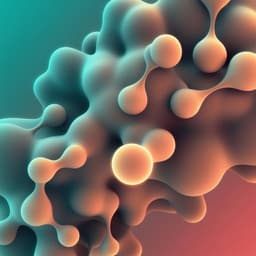
Medicine and Health
Differential associations between body composition indices and neurodevelopment during early life in term-born infants: findings from the Pakistan cohort: Multi-Center Body Composition Reference Study
S. Ariff, A. Aamir, et al.
This prospective observational study explores the relationship between fat-free mass and fat mass growth during the first 1000 days of life and its impact on neurodevelopment in infants from Karachi, Pakistan. Remarkably, infants with motor delays showed lower fat-free mass, while those with behavioral issues exhibited higher fat percentage, underscoring the crucial balance needed in nutritional strategies. This research was conducted by Shabina Ariff, Almas Aamir, Aneurin Young, Laila Sikanderali, Arjumand Rizvi, Fariha Shaheen, Gul Nawaz Khan, Sajid Soofi, and Michelle Fernandes.
Related Publications
Explore these studies to deepen your understanding of the subject.







